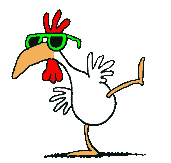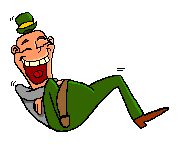Ability to Scan IdeasTopic > DISECT > List Relationships > (go thru joke creation)
Topic/Relationships (picture, word, phrase) have standard meanings, go beyond that
Topic/Relationships (picture, word, phrase) roll ideas until hits a joke
Start with what you want to say, then scan for perfect 2nd idea to form a funny line.
Recommendation-4-Newcomers: Write out list and stimulate funny bones
Ability to VisualizeFunny Jokes = Conjures ridiculous images
Ie. “She’s so fat that…”
My mother-in-law is so large, one day she wore a gray dress and an admiral boarded her.
Imagery – woman looked like a battleship
(Created by letting the mind wander into exaggerated visions of her size—whale, building, truck, tank, battleship, etc. As comedy composer, take realistic image and distort/exaggerate it out of proportion to see what funny images you can visualize. Find right words for new image and walah!)
Topic > DISECT > Exaggerated Visions of Topic > Get right words to show image
A Facility with WordsGet proficient with words. Develop an ear for words and phrases. List trendy words and phrases.
Ie. Someone asked Bob Hope how he stayed so young-looking. He replied: I use industrial-strength Oil of Olay.
Here, he combined 2 popular commercial phrases – “industrial strength” and “Oil of Olay” = Joke
Ability to Pick Up Comedy RhythmGet familiar with:
Comedy Rule of 3
Put punchline close to the end of joke
Words with “K” are funny
Rhythm, according to Gene Perret is inherent (we’ll see about that :)
*****************************************************
A wonderful Message Board TV Writer.Com







